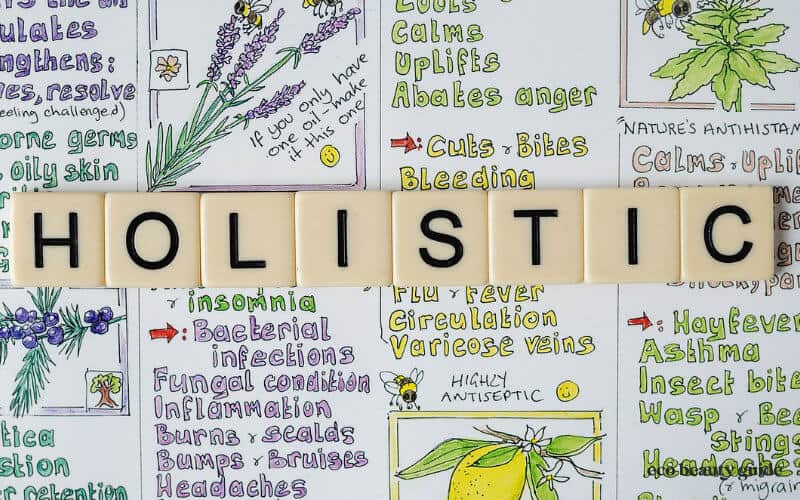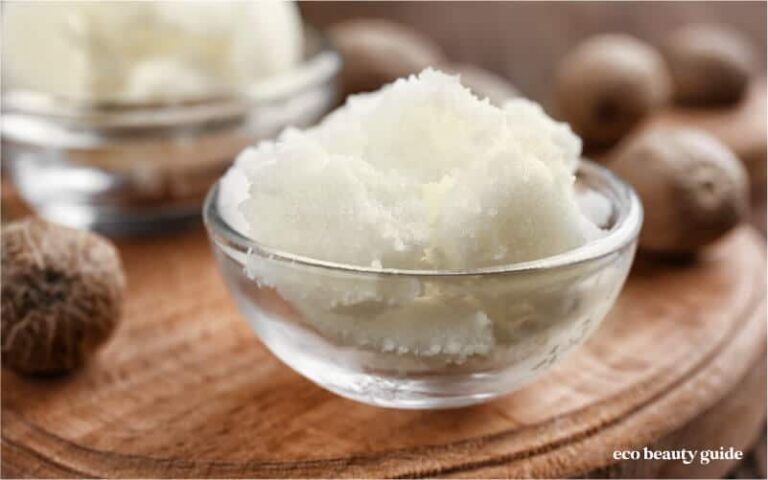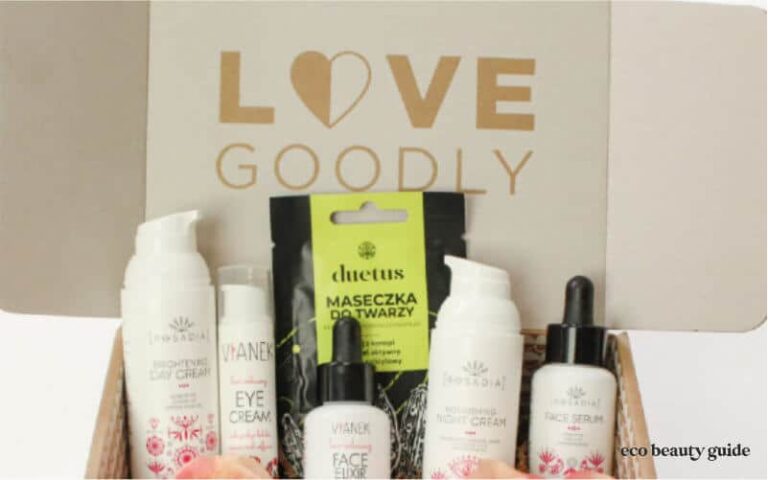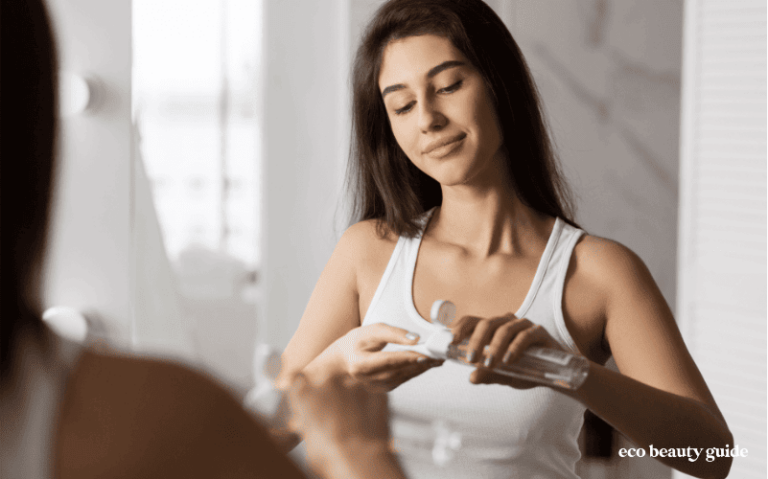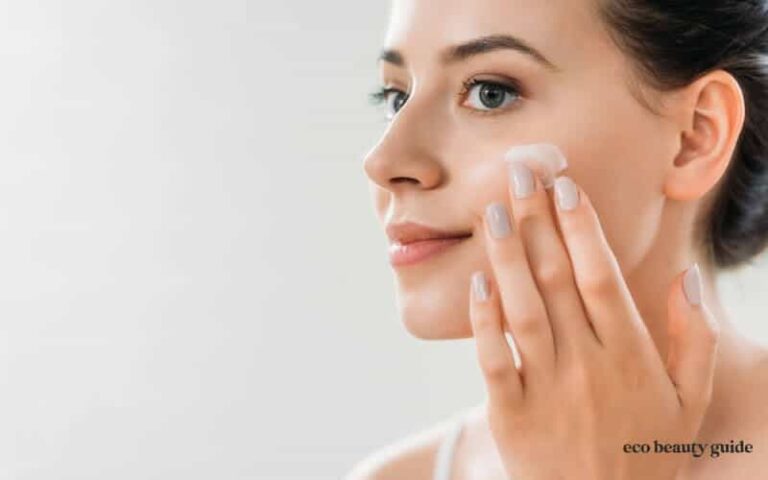The Ultimate Guide to Holistic Skincare
Have you been using commercial skincare products for years, but you’re seeing more breakouts than glow-ups? Despite trying nearly every product on the shelf, your skin hasn’t improved. Maybe your skin doesn’t like the strong chemicals in regular products, so it gets irritated or dry.
If you can relate to these situations, you’re not alone. Many people struggle with finding the right skincare routine because they’re unsure how to take a more holistic approach.
I get it. It’s so frustrating to constantly fight with your skin and not see any progress, no matter how hard you try. But hey, you’re in the right spot now! This post is here to help you navigate the world of holistic skincare. So, let’s jump right in and uncover the secrets of natural, effective skincare.
Natural Ingredients for Skin Regimen
Using natural ingredients is the foundation of a holistic skincare routine. These ingredients come straight from plants and minerals, not created in a lab. They’re packed with nutrients, antioxidants, and essential fatty acids that our skin loves. They work in sync with our skin, providing nourishment, hydration, and protection without any harm or irritation. They’re also eco-friendly, causing less pollution and waste compared to synthetic ones. So, switching to natural ingredients isn’t just great for your skin, but for our planet too. Let’s dive into some of the top natural ingredients that can take your skincare game to the next level.
1. Oat Straw

Oat straw is the stem of the oat plant while it’s still green, and its sap is milky. It’s a fantastic source of silica and calcium and has been used for centuries to address skin issues and balance blood sugar levels. People usually make oat straws into tea or extracts and add them to food. You can also find it in skincare products, such as cleansers, toners, and moisturizers. Oat straw has anti-inflammatory properties, so it’s great for calming redness and irritation. It is also packed with vitamins like calcium that help to keep your skin healthy and strong.
2. Aloe Vera
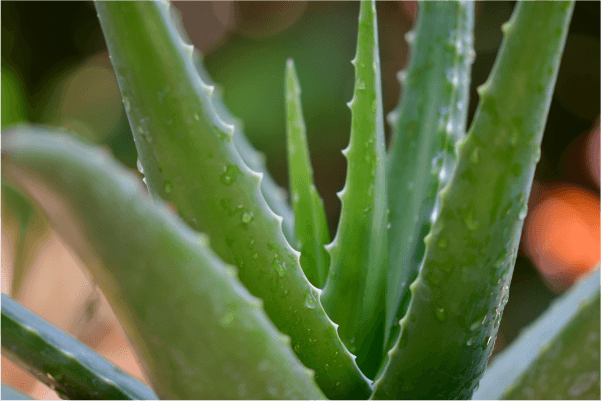
This herb is well-known for its gel, which works wonders in healing minor burns. Its ability to promote rapid cell regeneration aids in the healing of wounds, rashes, fungal infections, and various skin issues. Plus, aloe vera can also be turned into a refreshing juice drink. There are different ways of using aloe vera in skincare. You can use it as a moisturizer, facial mask, toner, or even a gentle cleanser. It is great for all skin types especially those with oily skin since it can help reduce sebum and regulate the production of natural oils.
3. Jojoba Oil
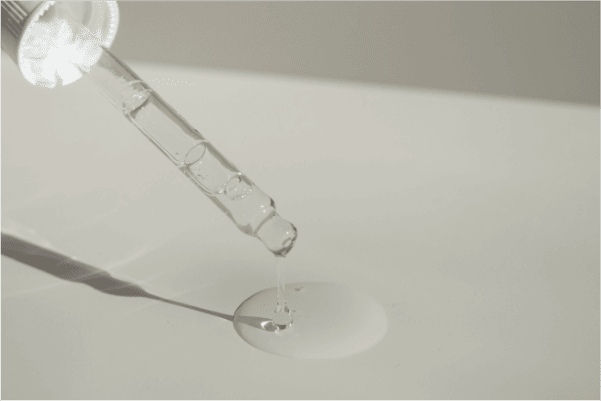
Jojoba oil is a liquid wax extracted from jojoba seeds found in the deserts of Arizona, California, and Mexico. It’s similar to our skin’s natural oils, which makes it an excellent moisturizer that helps keep the skin smooth and hydrated. Its anti-bacterial and anti-inflammatory properties make it great for treating acne or other blemishes. Jojoba oil can also be used to remove makeup and leave your face feeling clean and refreshed. It has a light, nutty scent and is safe for use on all skin types. Additionally, it’s an excellent anti-aging product as it helps reduce wrinkles and keeps the skin looking youthful.
4. Horsetail
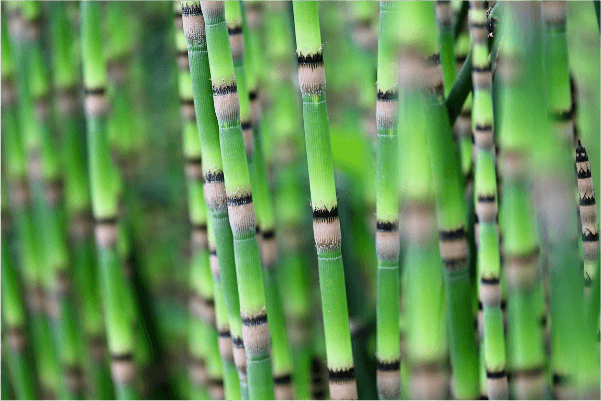
Horsetail, also known as shavegrass, used to be used as an exfoliant and probably still is in some places. It’s an astringent that’s packed with silica, which helps keep the skin supple. You can drink it in tea, but it’s usually dried, powdered, and made into a poultice for the skin. You can even add it to a nice warm bath. It also helps strengthen nails and hair. Horsetail has a calming effect on the skin, which makes it great for soothing inflamed skin conditions like eczema and psoriasis. Plus, its natural antiseptic properties help keep the skin clean and healthy.
5. Green Tea Extract
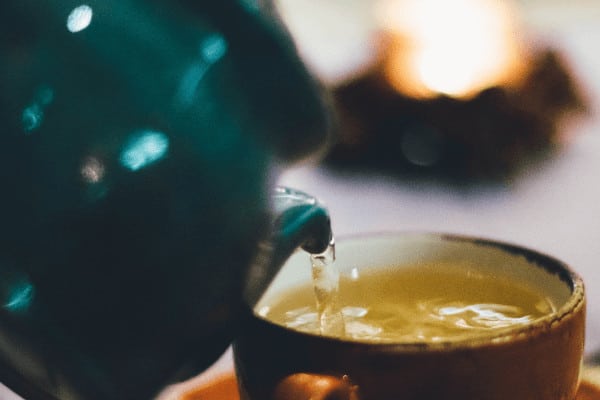
Green tea extract is a powerful antioxidant that helps protect the skin from UV damage and environmental stressors. It’s also an anti-inflammatory, which makes it great for reducing redness and irritation. You can drink it in tea or use it topically as part of your skincare routine. The topical application lets you reap all the benefits of green tea without needing to consume large amounts of caffeine. Applying a green tea extract serum or lotion helps keep the skin moisturized and helps reduce signs of aging like wrinkles and fine lines.
6. Alfalfa

The plant’s leaves and seeds are great for skin health. Alfalfa is packed with carotene, which gets converted to vitamin A in the body. Vitamin A is an important antioxidant that’s crucial for the health of your skin, hair, and nails. Plus, alfalfa is loaded with essential trace minerals, vitamin K, chlorophyll, and amino acids. All of these components help keep the skin hydrated, glowing, and healthy. You can boost your intake of alfalfa by drinking it as a tea or adding dried leaf powder to smoothies.
7. Honey
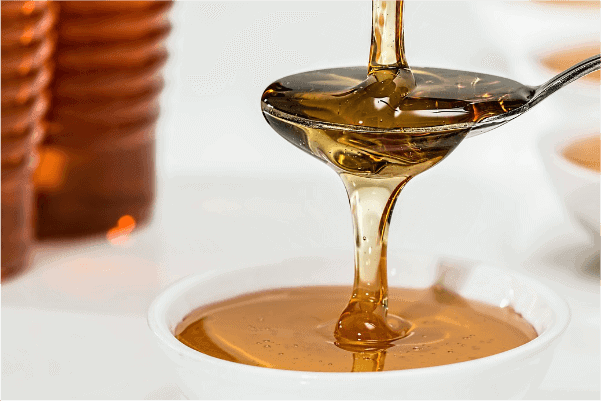
Honey is packed with skin-healthy vitamins like B1, B2, C, D, E, and K. It helps keep skin hydrated and reduces redness. Pamper yourself with a luxurious honey facial mask or a bath infused with this moisturizing liquid gold.
8. Nettles
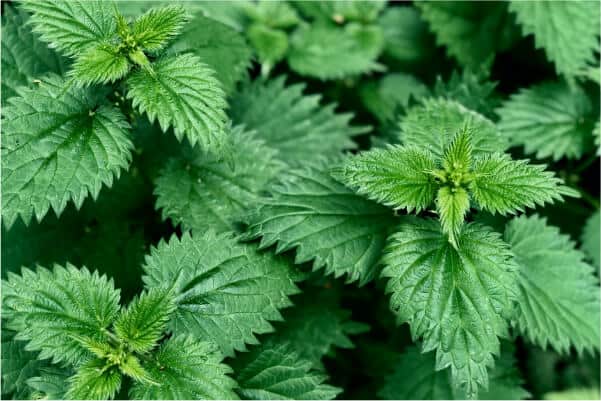
Nettle leaves work wonders in treating inflammatory skin conditions, especially in kids. They’re great for soothing eczema and healing wounds and ulcers. And guess what? When you prepare nettle leaves as a tea or tincture, their stinging properties become harmless. Plus, nettle is packed with minerals, iron, sulfur, and vitamin C – all working together to keep your skin healthy and youthful.
9. Shea Butter
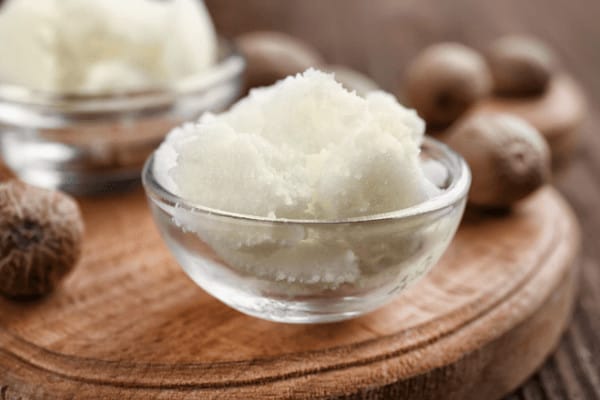
Shea butter is one of the best natural moisturizers out there. It’s packed with vitamins A and E, essential fatty acids, and antioxidants that can nourish your skin from the inside out. You can use it to tackle dryness, eczema, psoriasis, wrinkles, stretch marks, and even those pesky insect bites.
10. Rose Hips
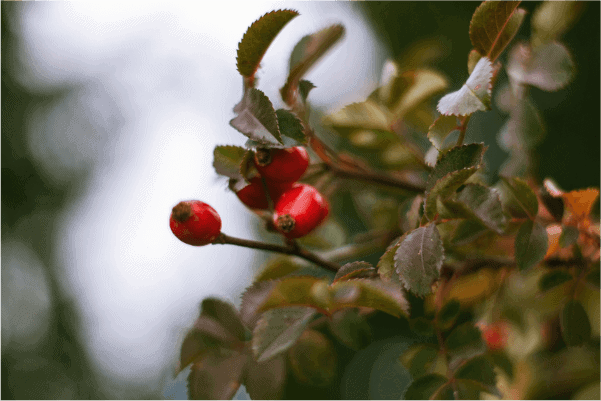
This is the fruit of the rose plant. Packed with vitamin C, it’s like a super tonic that does it all. You can enjoy it as tea, in capsules, as part of a mask, or even in a facial. And guess what? It also makes a killer jelly. Studies have shown that rose hip is super effective in combating wrinkles and sun spots, so if you’re looking for a natural way to tackle premature aging, try incorporating rose hips into your skincare routine.
11. Witch Hazel
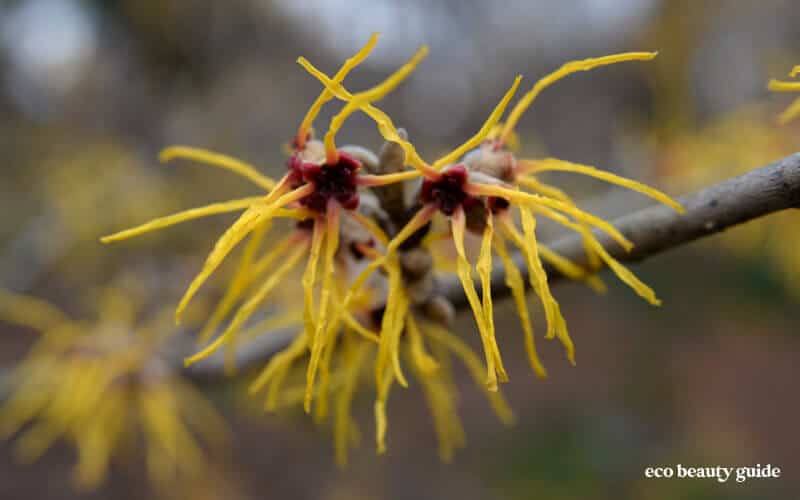
Witch hazel is a great way to achieve that natural glow without the harsh chemicals. Its astringent properties it are great for reducing inflammation, treating acne, and helping with skin irritations. It’s also great for removing dirt and oil from your pores, which can help keep your complexion looking clear and radiant. And of course, witch hazel is totally all-natural and free of harsh chemicals, so it’s a great addition to your holistic skincare routine.
12. Turmeric
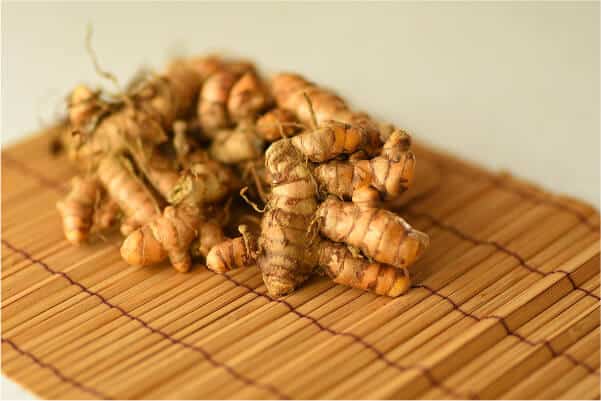
Turmeric comes from the rhizome of a plant that looks like ginger. When you use it as a compress, it can heal injuries and skin lesions. When you eat turmeric, it helps cleanse your blood, which is good news for your skin too. Plus, it’s an anti-inflammatory and antimicrobial agent that can help reduce redness and swelling.
13. Tea Tree Oil
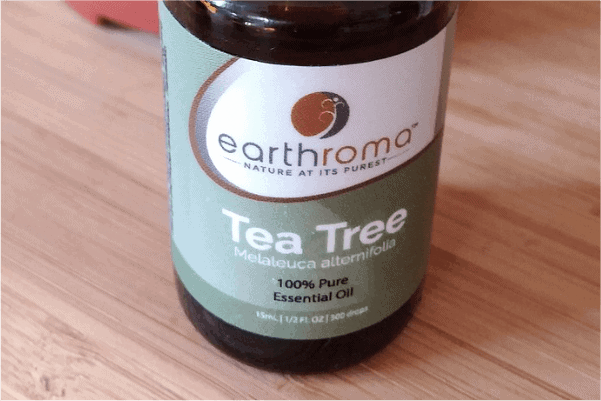
Tea tree oil is an amazing natural ingredient that has a number of skin benefits. It’s often used to treat acne, but it can also be used to reduce inflammation and treat minor skin irritations. And, because tea tree oil is a natural antifungal agent, it can help keep your skin clear and healthy. Just remember to always dilute the oil when you’re using it on your skin.
14. Irish Moss
Yep, carrageenan, the stuff that thickens store-bought ice cream. When you put it on your skin, Irish moss works its magic as a demulcent, soothing inflamed, or irritated skin. It’s also packed with minerals, vitamins, and antioxidants that help keep skin soft and hydrated. And when you add it to a homemade facial mask, it’ll draw out toxins from your pores for an extra boost of natural skincare.
15. Chamomile
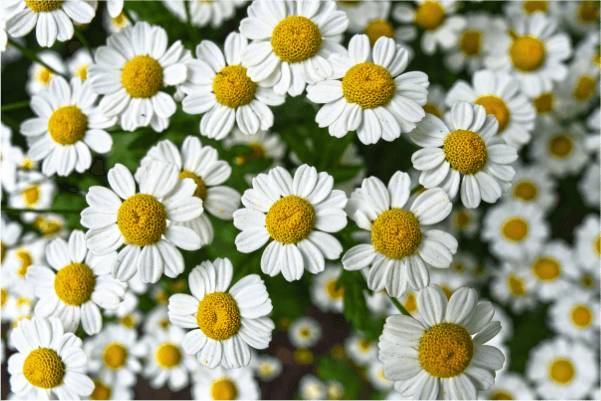
Chamomile has been used for centuries as a natural remedy for skin ailments. It’s an anti-inflammatory that helps reduce redness, and its mild sedative effects can help reduce anxiety and stress which are often the root cause of skin problems. You can use chamomile oil or dried flowers in a tea, or add it to your homemade facial masks and scrubs.
16. Burdock Root
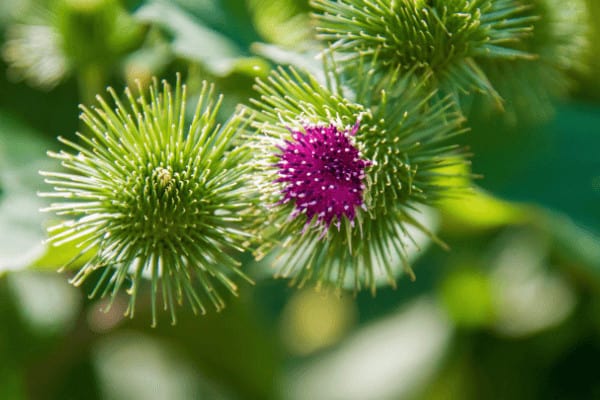
You can also enjoy this herb as a tea or use it as a compress for skin issues like acne and eczema. It’s great for soothing boils, bruises, warts, and canker sores.
17. Seaweed

Seaweed is one of the best sources of minerals and vitamins for your skin. It’s rich in antioxidants, iodine, zinc, and other trace minerals that are great for skin health. It also helps reduce inflammation and irritation so it’s a great choice for those with sensitive skin. For an extra boost of hydration, you can add some to your DIY face masks.
18. Spirulina
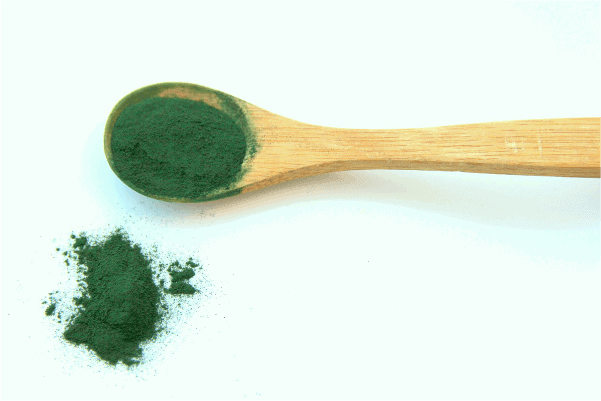
This microalgae comes in a dried powder form that you can sprinkle on food or mix with drinks. It’s packed with chlorophyll, vitamins, minerals, amino acids, and proteins, making it a fantastic source of goodness. Plus, it’s known to cleanse the blood and promote healthy circulation, which is great for your skin.
19. Rosemary
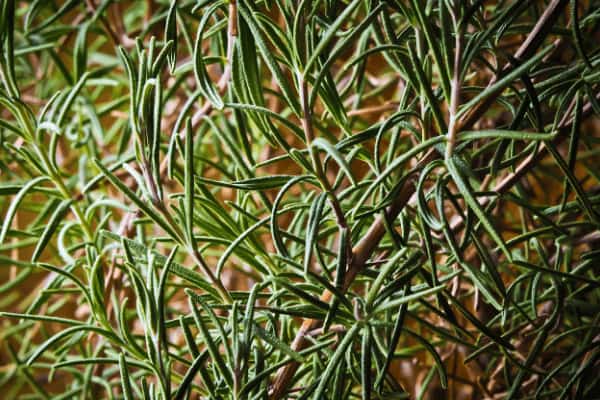
The fragrant leaves of this herb can help tone the skin and are particularly beneficial for the hair. It’s believed to stimulate hair follicles and prevent hair graying and baldness when used as a shampoo. Rosemary also has anti-inflammatory and natural antibacterial properties, which can help with skin problems like eczema and psoriasis.
20. Yellow Dock Root
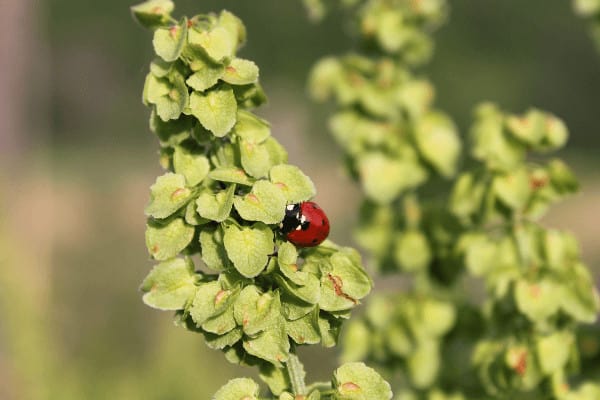
Whether you prefer it in a tea or as a capsule, this root, with its slight astringent properties, is packed with iron and can help build and cleanse your blood. That’s why it’s a great option for addressing skin conditions. Yellow dock root is also commonly used in formulas to treat psoriasis and eczema. It works wonders on itchy skin and can help reduce inflammation.
21. Sarsaparilla Root
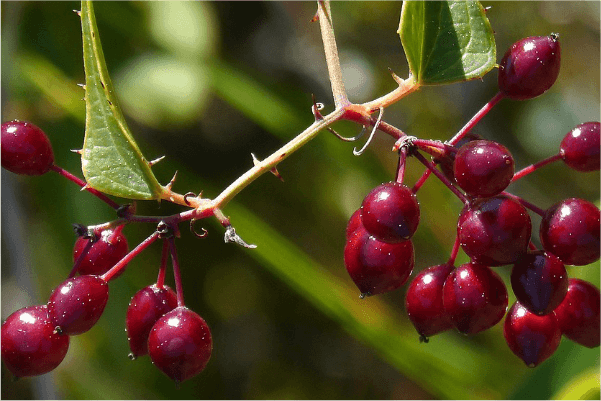
You can apply the oil of this root topically to heal skin conditions like itching and scaling, such as eczema and psoriasis. It’s also great for treating ringworm, athlete’s foot, acne, and other inflammatory skin issues. You can also drink sarsaparilla root tea to improve your skin’s health from the inside.
Holistic Skin Care Routine
Your skin is the largest organ of your body and it mirrors the health of your inner self. When it comes to holistic skincare, it’s not only about what you put on your skin. It’s also about what you eat and how you take care of your mind. A holistic skincare routine is all about adopting a complete, 360-degree approach to skin health. It focuses on nourishing your body with nutrient-rich foods, staying hydrated, prioritizing sleep, managing stress, regular exercise, and of course, using natural skincare products. This comprehensive routine is the way forward to achieving healthy, glowing skin and a happy, balanced self. It’s like a self-love ritual, where we emphasize on caring for every aspect of our well-being, just like our skin, which deserves nothing but the best.
Step-by-step guide to a holistic skincare routine
- Start your morning with a glass of warm water and fresh lemon juice to kick-start your metabolism and replenish your skin.
- Cleanse your face with a natural facial cleanser in the morning, followed by an antioxidant-rich serum that can help protect your skin from environmental damage throughout the day.
- For moisturizing, use an oil-based moisturizer like jojoba oil or coconut oil to provide your skin with deep nourishment and hydration.
- Apply a light sunscreen of SPF 30+ before stepping outdoors to protect your skin from the sun’s harsh UV rays.
- At night, use an exfoliating cleanser that can gently remove dirt, debris, and dead skin cells.
- Follow up with a natural toner to restore your skin’s pH balance and help close pores.
- Finish off the night by applying a rich moisturizer or an overnight face mask that is packed with collagen-boosting ingredients like aloe vera, vitamin C, and hyaluronic acid for a radiant complexion.
- Make sure to include a few drops of essential oil in your nightly routine, as they can help soothe inflammation and promote skin regeneration.
Tips for enhancing holistic skincare
- Nourish your body with nutrient-rich foods like fruits, vegetables, grains, nuts, and healthy fats to provide essential vitamins and minerals that can help support skin health.
- Adequate hydration is key for healthy skin, so make sure to drink plenty of water throughout the day to keep your body and skin well-hydrated.
- Incorporate regular exercise into your routine as it helps oxygenate the blood and promote a natural glow from within.
- Get at least 7-8 hours of quality sleep each night to allow your body to rest and recharge so that you can wake up with healthy, glowing skin.
- Avoid skincare products that contain harsh chemicals, preservatives, parabens, or sulfates as these have been linked to skin irritation and premature aging. Choose natural skincare products that are free of these potentially harmful ingredients to maximize the benefits of holistic skin care.
- Supplement your skincare routine with natural oils and masks to help keep your skin looking healthy and radiant. Natural oils like jojoba, coconut, or almond oil can be used as moisturizers while face masks made from clay, cucumbers, or honey can help nourish and rejuvenate your skin.
- Lastly, be sure to practice mindful meditation as it helps reduce stress levels which can lead to a healthier complexion in the long run.
By following these tips and maintaining a holistic skincare routine, you will be well on your way to achieving healthy, glowing skin that radiates from the inside out!

FAQs about holistic skincare
21 Holistic Skincare Ingredients
Holistic skincare is more than just a routine, it’s a lifestyle choice that emphasizes overall well-being for healthy skin. To keep your skin healthy, eat nutritious food, drink enough water, exercise often, and get enough sleep. It also encourages using natural skincare products and avoiding those with harmful chemicals. Plus, it recognizes the importance of managing stress through mindful meditation for a gorgeous complexion. Embrace holistic skincare for a naturally healthy and radiant glow.
Now I’d like to hear from you. What do you think about holistic skincare? Leave your comment below.

